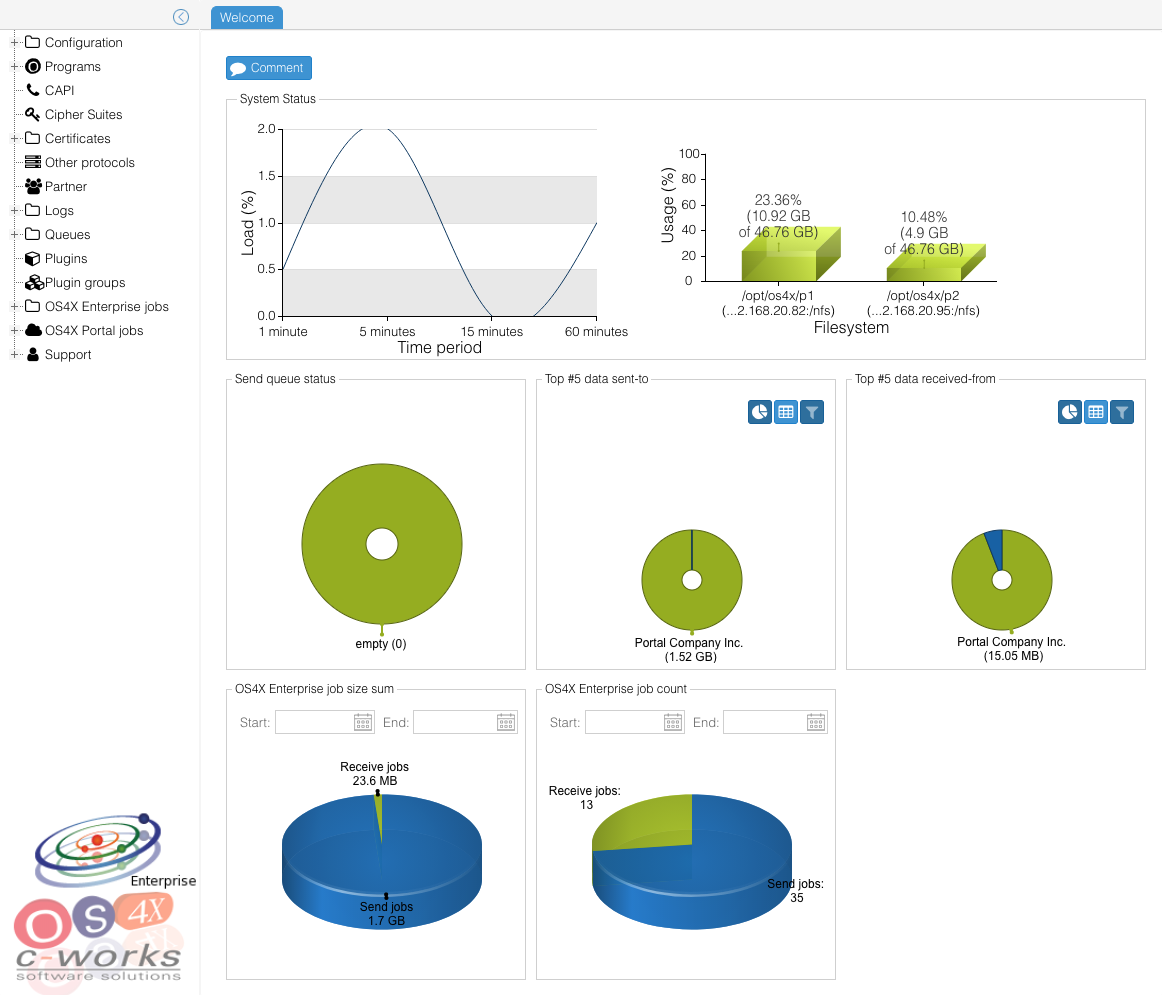Difference between revisions of "OS4X administrative interface"
| Line 27: | Line 27: | ||
== OS4X admin interface app == | == OS4X admin interface app == | ||
In situations where your local webbrowser is horrible slow (mainly using Internet Explorer), you can use the OS4X admin interface as a richt-client application. The application offers the same functionality as the administrative web interface. You have to know where your OS4Xapi is reachable via http(s) you want to communicate with. | In situations where your local webbrowser is horrible slow (mainly using Internet Explorer), you can use the OS4X admin interface as a richt-client application. The application offers the same functionality as the administrative web interface. You have to know where your OS4Xapi is reachable via http(s) you want to communicate with. | ||
| + | |||
| + | === Optional parameters === | ||
| + | You can pass as a single first parameter the URL of the OS4Xapi to the program when starting. This URL will be used for the communication between the frontend and backend. If the URL doesn't point to a valid OS4Xapi, the GUI will not start with the given OS4Xapi, but shows you the start screen with the input field for the OS4Xapi URL (same as started without any parameter. | ||
| + | |||
| + | Example: | ||
| + | |||
| + | C:\Program Files (x86)\OS4Xadmin>"OS4X administrative interface.exe" http://192.168.1.70 | ||
Revision as of 11:20, 26 April 2013

The administrative interface of OS4X is available in different versions. The most common one is the web interface, which is accessed via a webbrowser of your choice.
All interfaces share the same datasource: the OS4Xapi. The complete communication between the frontend and backend is done via http or https. The OS4Xapi is distributed in the directory of the OS4X administrative web interface, but can be installed seperately outside of this directory wherever your interface expects it.
OS4X administrative web interface
The most easy way of accessing the administrative interface is by using the web interface. Its standard installation directory gives the administrator access via an URL like
http://os4x-server/os4x/
from where on the interface dynamically forwards the user to the correct directory.
Server selection in the web interface
As a feature available since 2013-04-26, the admninistrative web interface can communicate with any other OS4Xapi instances than the local one (single requirement: the OS4Xapi you are communicating with must be of at least the same version). You can access the selection on different ways:
- Use the menu to select the entry "Configuration" -> "Switch OS4X srv.":
File:Os4xadmin select server.png
- Navigate to any OS4X administrative interface and add the appendix "
?server":
http://localhost/os4x/?server
The shown interface asks you where your OS4Xapi is located to which you want to communicate. In most common installations, you can enter the URL of the administrative webinterface (i.e. 'http://os4x-server/os4x'):
File:Os4x admin serversel empty.png
After a valid OS4Xapi has been found, the interface dynamically displays a popup which indicates that a URL was entered (and can be used) which is a valid OS4Xapi URL.
File:Os4x admin serversel ok.png
OS4X admin interface app
In situations where your local webbrowser is horrible slow (mainly using Internet Explorer), you can use the OS4X admin interface as a richt-client application. The application offers the same functionality as the administrative web interface. You have to know where your OS4Xapi is reachable via http(s) you want to communicate with.
Optional parameters
You can pass as a single first parameter the URL of the OS4Xapi to the program when starting. This URL will be used for the communication between the frontend and backend. If the URL doesn't point to a valid OS4Xapi, the GUI will not start with the given OS4Xapi, but shows you the start screen with the input field for the OS4Xapi URL (same as started without any parameter.
Example:
C:\Program Files (x86)\OS4Xadmin>"OS4X administrative interface.exe" http://192.168.1.70